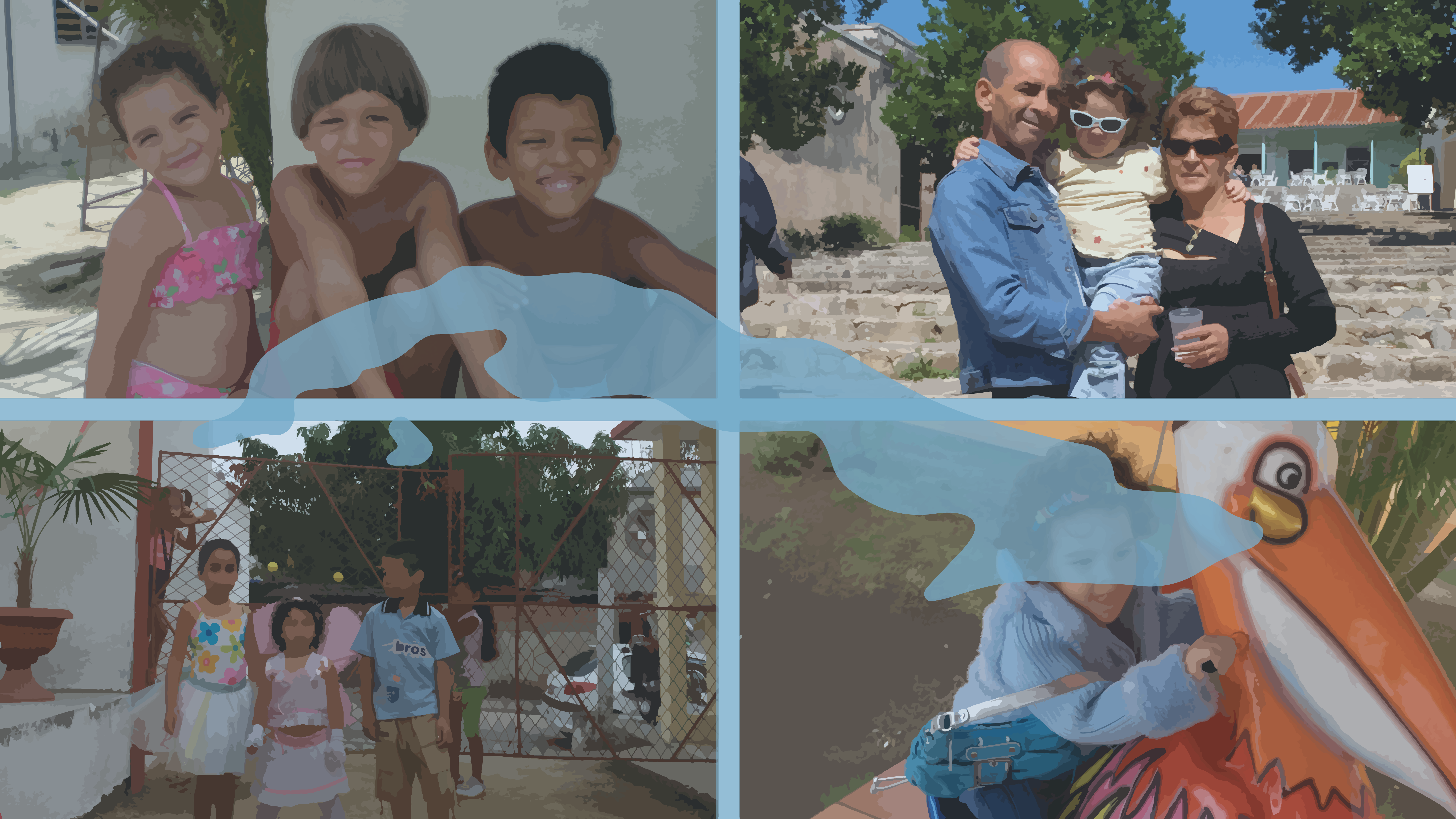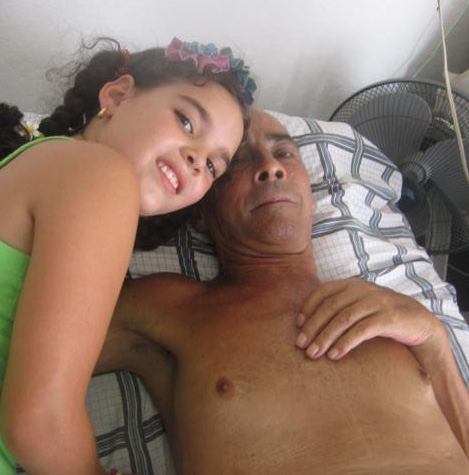Reclaiming the history of my last name

Melanie Peña Bombino, 3, with her grandparents and friends in Cuba.
Jan. 24, 2024 I Story by Melanie Peña Bombino I Graphics by Melanie Peña Bombino
This article is part of Atrium’s Winter 2023 issue. To view the print edition online, visit our Issuu here
I remember asking my mom once, “Why didn’t you put the eñe in my paperwork?”
There was an invisible little squiggle over the “n” in my last name. It signified that the Peña was pronounced pen-ya, not pen-a. While most of my classmates grew up knowing and never questioning their names, I didn’t fully understand mine until I was 10.
I realized my teachers didn’t know how to pronounce Peña, and that my lifelong friend, the squiggle, was missing from my ID, nametag and report card. When I asked why, my mom said, “Americans don’t know what it is, so there’s no point in using it. It’s just easier.”
Around this time, I also discovered my second last name “Bombino.”
In Cuba, most people have two last names. My first last name came from my dad, Pedro Peña. My second last name came from my mom, Mayvelis Bombino.
My family is from a little rural mountain town in Cuba. Before immigrating to the United States, my days were spent dancing in warm summer rain showers, playing with my pet chicken Melanie and hosting lizard-catching competitions with abuelito.



Collection of photos from when Peña Bombino lived in Cuba.
My grandpa, Angel Bombino, was my best friend. Everywhere that he went, I would follow. I celebrated my first birthday in a local bar, munching on cheese and crackers while my grandpa got everyone to sing me happy birthday. When I took my first steps, we were at his friend’s house. He immediately swooped me up and ran home, announcing to every passerby proudly that I could walk.
I was 3 when we left, and my mom told me his heart broke that day. Almost every year after we left, we would go back to visit. Duffel bag after duffel bag would be filled with a wide range of necessities: soap, medicine, sponges and clothes. I loved going back to see my childhood friends and relatives, but I knew something was wrong. We would go back to visit, but everyone there was trying desperately to leave.
I wasn’t allowed to drink the tap water my friends would drink every day. There were nights when the candles were brought out and my grandpa cooked dinner under the small twinkle of a taper candle during apagones. My friends would ask me what strawberries tasted like and day dreamt about flying back to the U.S. with me.
While half of my heart stayed in Cuba each time we left, the other half adjusted to growing up in Cape Coral, a small southwest Florida retirement community.
I never understood why each time I said I was from Cuba, the follow up question was “Did you come in a boat?”
Or why, when I spoke Spanish in class, my teachers would scold me for not including my non-Spanish speaking classmates.
When I finally learned my full name was Melanie Peña Bombino, I didn’t know what to do with it. Because in school and everywhere else, I was Melanie Pena.
I had two separate identities. One that I felt could only exist within my family. And one that I had created to make the transition here easier.
Thinking about Cuba was painful.
For most of my years in elementary school, I stayed in after care while my mom went to college and my dad worked. One afternoon in third-grade, I was playing on the swingset with my friend when I confessed that something had been on my mind. As tears formed around my eyes, I told her about my cousin in Cuba, who I had heard was struggling. For lunch everyday, her school was feeding her old rice and milk due to food scarcity. I remember the stress and guilt that filled me when I thought about my family in Cuba.
I don’t know when it happened but at some point, I stopped drawing the squiggle over my last name. It was easier to be Melanie Pena and distance myself from my culture because being Cuban felt too hard sometimes.
To grow up as a Cuban-American in the United States is to feel the constant pressure of knowing you need to make it for everyone that didn’t.

Peña Bombino with her grandpa, Angel Bombino, before he passed away.
I lost my grandpa to Cuba. He passed away at 53. The medical infrastructure in the country was too broken to care for him. And every year that passed and we visited, he would be thinner, frailer and sicklier. In fact, most of the family we visited appeared to age thrice as fast in Cuba than people in the U.S.
The distance I had unconsciously been placing between myself and my cultural identity dissipated July 11, 2021.
I heard hope and pride in my mom’s voice when she told me “Cuba esta despierta.”
Mass protests were taking place all over the island. People my age were fighting and making noise all in the name of freedom. Hundreds of people in my little hometown gathered in front of a community area to march and protest with the people in Cuba.
The moment was historic, marking the first major protests against the government since 1994. I was reminded of the resilience and power that came with being Cuban. Thousands of people across the entire world stood in protest to show support for the people risking everything in Cuba.
My name is now a reminder to myself of this history. Recently, I have been trying to use my full name more and more. And when I see another name with an eñe or special character, I make sure to always write it correctly. There is no eñe keyboard key, so usually, I’ll go through a bit of extra work to copy the eñe from Google.
I’ve fallen in love with my second last name, knowing that it’s something I share with my grandpa. I try to include the Bombino in more of my official paperwork. When I graduate from the University of Florida, I want Peña Bombino on the diploma. My grandpa was never able to leave Cuba but I carry him with me now through my name.

Melanie Peña Bombino
Melanie Peña Bombino is a staff writer and designer for Atrium. When she's not writing an article or designing a graphic, you'll find her exploring a coffee shop or spending time with her family.